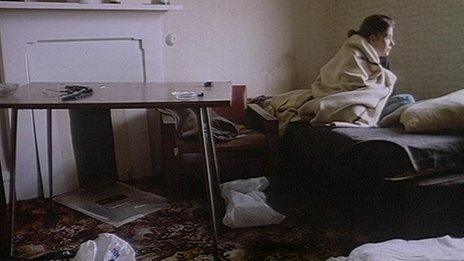Intentionally homeless people get help under new rules
- Published
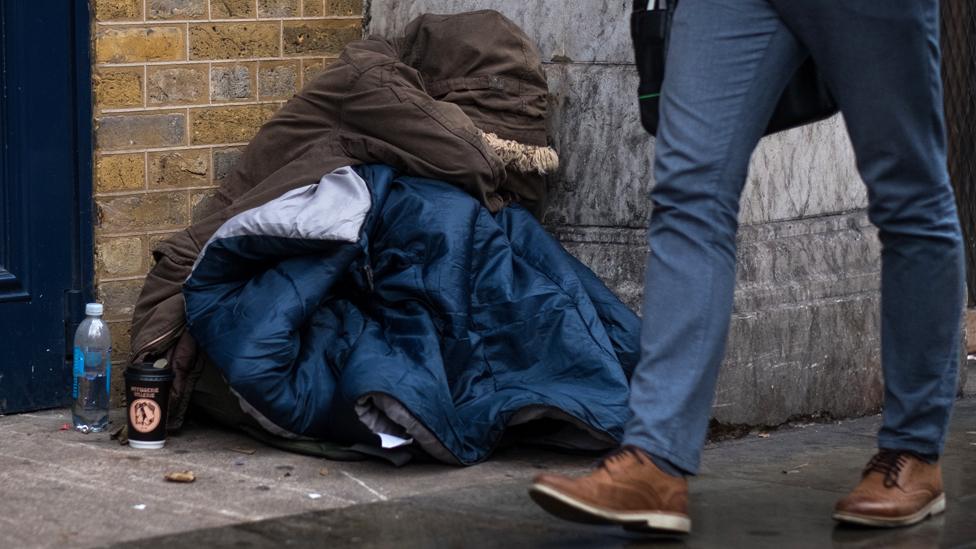
People can be considered intentionally homeless if they give up suitable accommodation
New rules have been brought in to make councils in Wales find housing for people who are intentionally homeless.
These are individuals or families who may have left suitable accommodation or have been evicted for anti-social behaviour.
The number of intentionally homeless households has fallen from 605 in 2013-14 to 201 in 2018-19.
Housing minister Julie James said the change gave greater security for those such as pregnant women and children.
She said: "Over the last five years, we have seen a significant fall in the number of people who are intentionally homeless.
"Some of these households will have young and vulnerable members and the commencement of the new provisions today will offer additional protection for them."
It is the latest measure implemented under the 2014 Housing (Wales) Act, which required local authorities to do what they can to prevent homelessness.
Under the law, external, people can be regarded as intentionally homeless if they deliberately did, or failed to do, something to cause them to lose their home when they should have known the consequences, such as giving up a suitable tenancy or being evicted for their behaviour.
The Welsh Local Government Association, which represents councils, said authorities "take very seriously their responsibilities to support households in challenging situations".
"Bringing into force this piece of legislation for households containing young and vulnerable people supports the practice and outcomes which all authorities seek to achieve," the spokesman added.
- Published27 April 2015
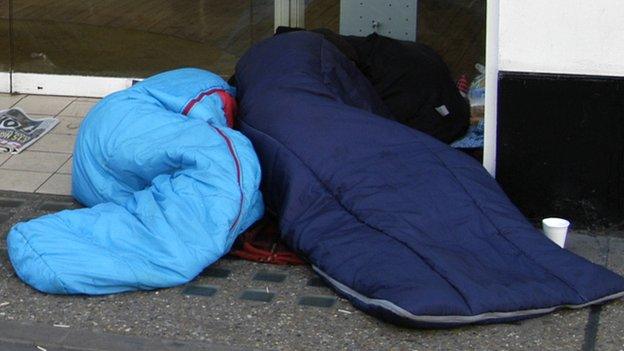
- Published13 June 2019
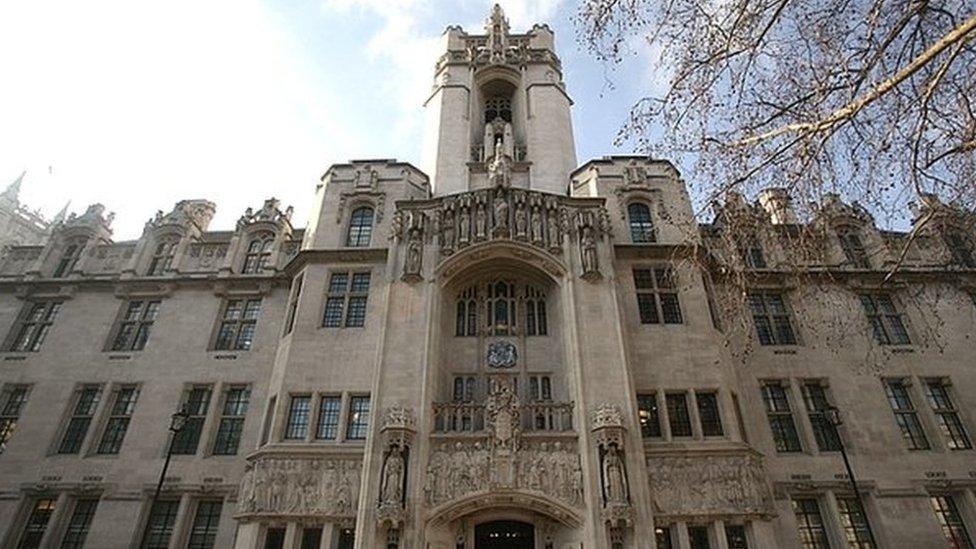
- Published13 December 2016
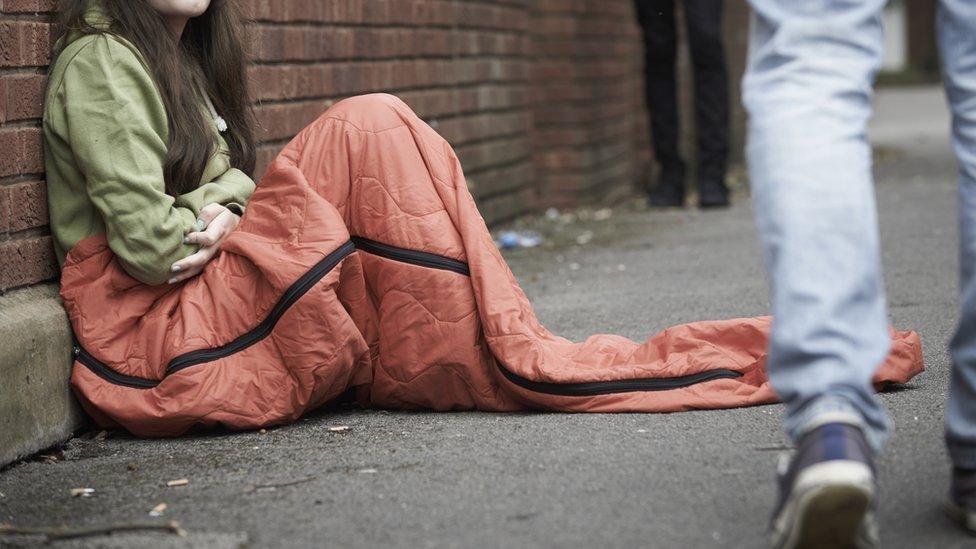
- Published15 October 2013
